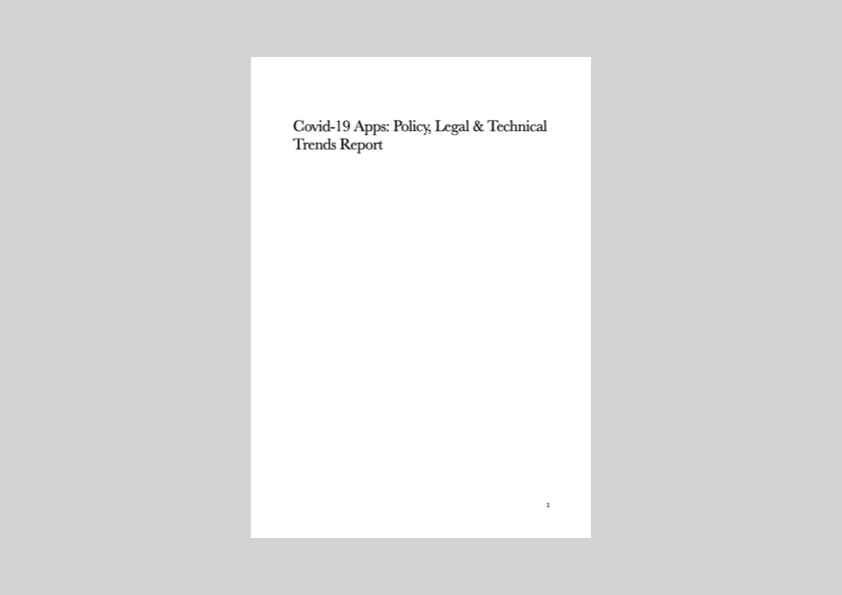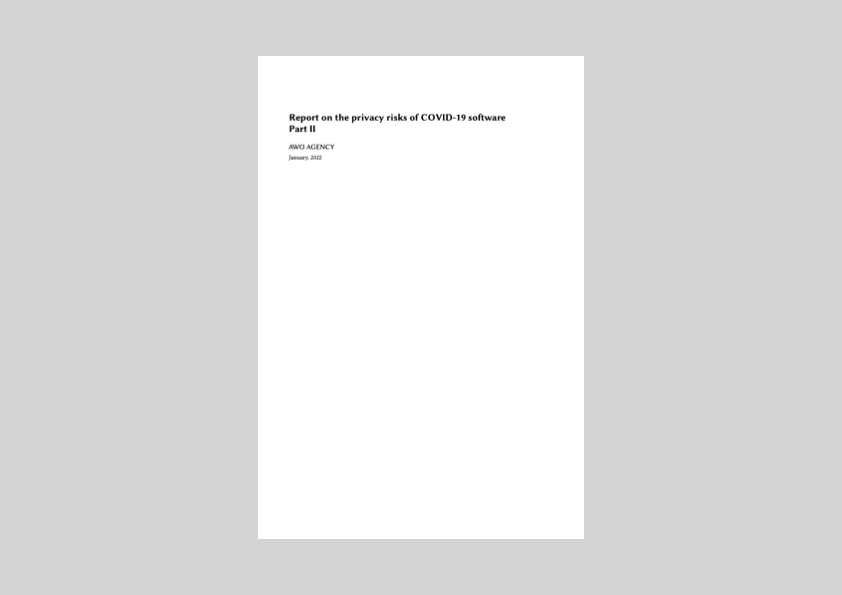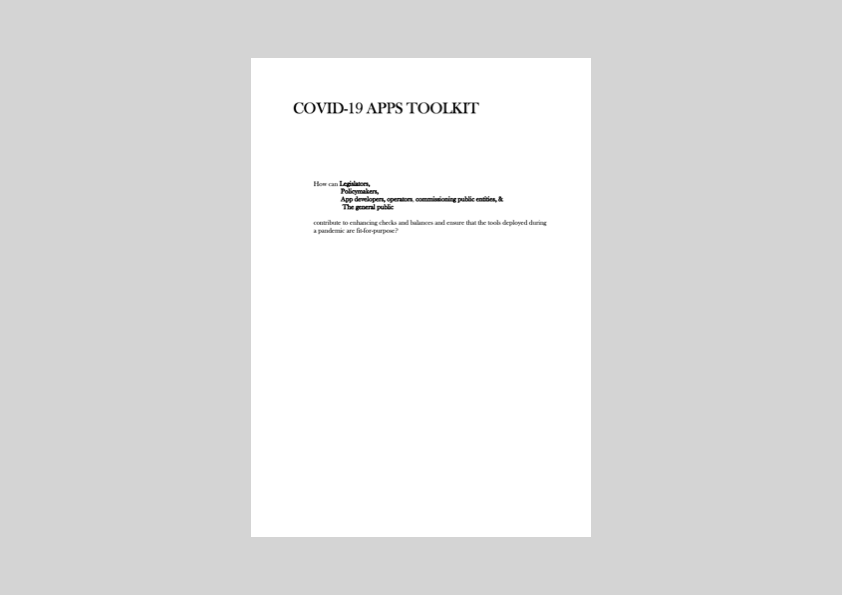Covid-19 App Project (Phase 2)
Covid-19 Apps: Policy, Legal & Technical Trends
The Covid App project is a civil society initiative stemming from a research interest in Covid-specific interventions in various countries across the globe. The project is divided into two phases and pays particular attention to Covid-19 tech interventions, notably contact tracing apps and immunity passports.
Phase 1 of the project drew together six civil society organisations: ALT Advisory (South Africa), Internet Democracy Project (India), InternetLAB (Brazil), Karisma (Colombia), SMEX (Lebanon), and United for Iran (Iran). AWO, a data rights agency, provided coordination support. The research focuses on the use of contact tracing apps across six different countries (Brazil, Colombia, India, Iran, Lebanon and South Africa) up until July 2021. It also entails an expert technical review of those apps from the countries of focus.

In order to reflect developments in this area, Phase 2 of the project covers the use of both contact tracing and immunity passport apps in Australia (as well as those pertaining specifically to Western Australia), Bahrain, Chile, Indonesia, Israel, the Netherlands, and Tunisia. The project has produced an in-depth report setting out the policy, legal and technical trends distilled from the analysis of those Covid apps and addressed the following: their impact on public health efficacy, their potential for function creep and other unintended consequences. From this analysis, a range of recommendations and best practices are presented for policymakers, tech developers and civil society.
It is our hope, as with phase 1 of the project, that the recommendations and best practices contained in the report enable the development of effective and sustainable public health practices to inform appropriate strategies for future pandemics or other public health emergencies.
Download Trend Report
Report on the privacy risks of COVID-19 software (Part II)
As part of phase 2 of the Covid app initiative, independent experts have conducted a technical assessment of eleven Covid-19 apps. Nine of these apps were deployed in the respective countries of focus, which include COVIDSafe (Australia), BeAware Bahrain (Bahrain), CoronApp (Chile), PeduliLindung (Indonesia), Ramzor (Israel), CoronaCheck and Scanner Voor CoronaCheck (the Netherlands), E7mi (Tunisia), and SafeWA (Western Australia). Two of the apps, CommonPass and IATA Travel pass, were deployed for global use.

The assessment focuses on technical characteristics and capabilities of these apps in order to evaluate potential privacy risks for individuals. The three elements covered more specifically are the 1) the mechanism used to manage digital COVID certificates and the architecture used for contact tracing, if any, 2) the presence of elements that can have a negative impact on users’ privacy, including the use of dangerous permissions, the presence of third-party libraries with intrusive behaviors, the potential dissemination of personal data, and the consistency of observed behaviors with statements found in the privacy policy, and 3) components and design choices that can affect the security of the app, such as the presence of potentially harmful behaviors or an incorrect use of hosting and communication capabilities.
The findings of this review constitute a description of technical elements found in the apps and their potential impact on users’ privacy. The review further identifies good practices in this area, supporting the broader research of the Covid app project.
We hope this contribution will support the critical evaluation of Covid apps and other pandemic response measures.
Download Technical Report
Covid Apps Toolkit
Building on all other reports from both research phases, this toolkit offers a consolidated overview of the key findings and recommendations for policymakers, tech developers and civil society. Each key finding is accompanied with recommendations and guidance for the practical implementation of good practices for stakeholders involved in the Covid-19 pandemic response. The document also includes tools for implementing some of the recommendations, such as guidance for privacy-by-design for contact tracing apps and templates to help with the software development process.

We hope that this contribution serves as a starting point for those stakeholders to tailor to the specific issues in their respective contexts, ensuring effective and safe public health interventions.
Download Toolkits
- Arabic version: PDF or Word Document
- Chinese version: PDF or Word Document
- English version: PDF or Word Document
- Farsi version: PDF or Word Document
- French version: PDF or Word Document
- Hindi version: PDF or Word Document
- Portuguese version: PDF or Word Document
- Russian version: PDF or Word Document
- Spanish version: PDF or Word Document